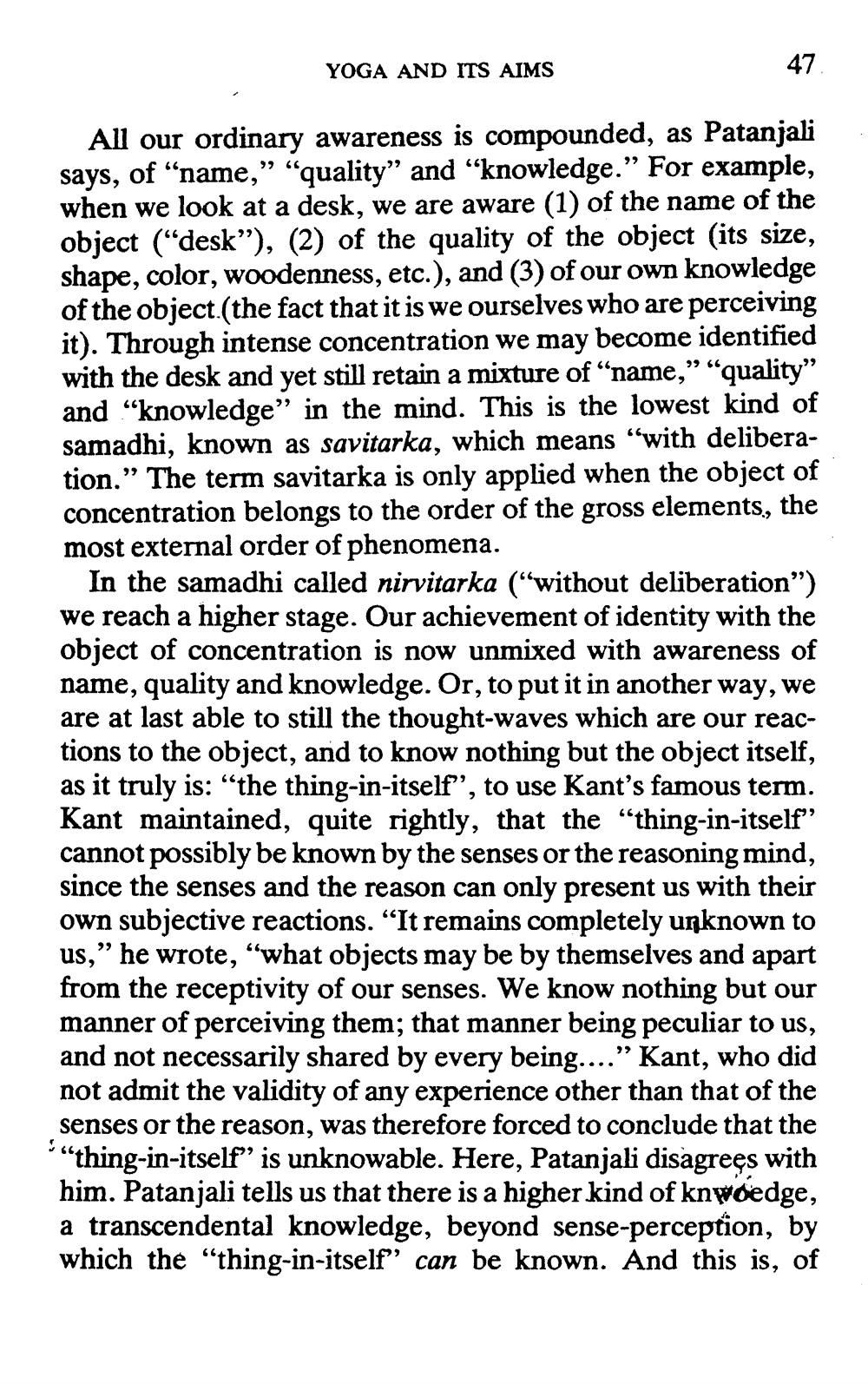________________
YOGA AND ITS AIMS
47
All our ordinary awareness is compounded, as Patanjali says, of "name," "quality" and "knowledge.” For example, when we look at a desk, we are aware (1) of the name of the object (“desk”), (2) of the quality of the object (its size, shape, color, woodenness, etc.), and (3) of our own knowledge of the object.(the fact that it is we ourselves who are perceiving it). Through intense concentration we may become identified with the desk and yet still retain a mixture of “name," "quality" and “knowledge” in the mind. This is the lowest kind of samadhi, known as savitarka, which means “with deliberation.” The term savitarka is only applied when the object of concentration belongs to the order of the gross elements, the most external order of phenomena.
In the samadhi called nirvitarka (“without deliberation") we reach a higher stage. Our achievement of identity with the object of concentration is now unmixed with awareness of name, quality and knowledge. Or, to put it in another way, we are at last able to still the thought-waves which are our reactions to the object, and to know nothing but the object itself, as it truly is: “the thing-in-itself”, to use Kant's famous term. Kant maintained, quite rightly, that the "thing-in-itself" cannot possibly be known by the senses or the reasoning mind, since the senses and the reason can only present us with their own subjective reactions. “It remains completely unknown to us,” he wrote, “what objects may be by themselves and apart from the receptivity of our senses. We know nothing but our manner of perceiving them; that manner being peculiar to us, and not necessarily shared by every being...." Kant, who did not admit the validity of any experience other than that of the
senses or the reason, was therefore forced to conclude that the * "thing-in-itself is unknowable. Here, Patanjali disagrees with him. Patanjali tells us that there is a higher kind of knwoedge, a transcendental knowledge, beyond sense-perception, by which the "thing-in-itself" can be known. And this is, of




